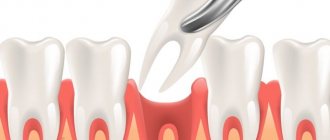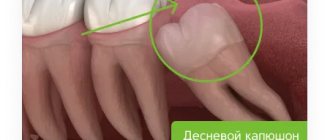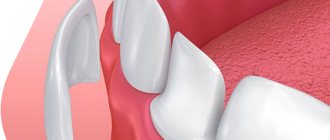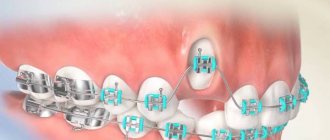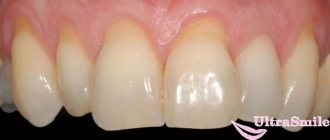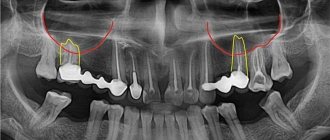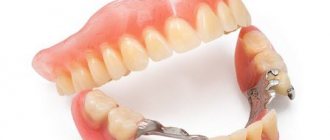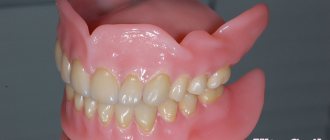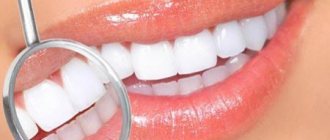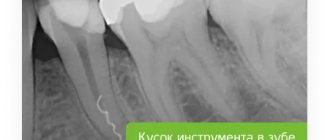Author: Brodsky Sergey Evgenievich Deputy Chief Physician, Candidate of Medical Sciences in the specialties: dentistry and medical microbiology Dental treatment is not the most pleasant procedure, which most half of the population is afraid of. Therefore, patients often resort to the lunar calendar when choosing a date for dental procedures to minimize the risk of complications and reduce pain during the procedure. Astrologers believe that the success of most medical procedures depends on the changing phases of the moon.
Why do you need to treat your teeth according to the lunar calendar?
The Moon, changing its position in the sky, influences the water in the seas and oceans, causing ebbs and flows, and other processes occurring on Earth. Lunar phases are taken into account when carrying out agricultural work and fishing, so humanity has long been forecasting the activity of the Earth’s satellite - the lunar calendar.
The Moon also affects all processes of the human body. First of all, it affects biological fluids - blood and lymph, in particular the degree of filling of organs. Therefore, the lunar calendar is taken into account when treating and removing teeth.
Who is the procedure indicated for?
Tooth extraction is done only in the most extreme cases, when treatment is not possible. This rule applies to permanent teeth. In particular, the following situations belong to the indications:
- installation of implants;
- treatment of severe forms of cysts, granulomas, pulpitis, when other methods are ineffective;
- with periodontal disease or periodontitis;
- when installing a braces system or dentures in the case when some teeth interfere with this process;
- removal of a wisdom tooth that grows in the wrong direction or causes certain problems during its growth.
Introduction
Patients very often try to postpone the dental implant procedure. What guides patients and doctors in their decision to place or not place an implant? What happens to bone tissue and gums when a tooth is missing. When can placing an implant help a patient?
Introductory information about the consultant:
The chief physician of the Research Center, Ph.D., answers patient questions. implantologist Dakhkilgov M.U. The word of an expert in the field of implantology is always important. Why is dental implantation an important component of dental health? And when is it absolutely necessary, and when can implantation be postponed?
Magomed Umatgireevich is a surgeon who has personally installed a huge number of implants from almost all leading manufacturers - such as Nobel, Straumann, Astra Tech, Ankylos, Bredent. Doctor to whom patients come from all over the world:
Magomed Dakhkilgov is the chief physician of clinics founded in 2010, which confidently occupy the highest places in professional ratings for implantology in Moscow and Russia.
IMPORTANT! Financial support for dental implantation
Do you want to undergo high-quality dental implantation in our clinics, but have a financial problem? This can be solved! From July 20, 2020
You can also use the dental implantation service in the clinics of the German Implantology Center in installments.
Before we talk about dental implantation itself, let's talk about the factors that precede it. After all, installation of an implant becomes necessary when a person loses a tooth.
Main stages
Regardless of the indications, the tooth is removed in several stages:
- examination by a doctor, diagnostic procedures, medical history;
- anesthesia of nearby areas (carried out by injection into the gum of the anesthetic Ultracaine, Ubestezin, or others)
- ligamentotomy (detachment of the tooth itself from the gum);
- application of forceps, their gradual movement to the area under the gum and further fixation;
- tooth dislocation;
- direct removal of the element from the hole;
- inspection and treatment of the hole using antiseptics and other medications;
- suturing (carried out only if there is a large wound surface).
Usually, tooth extraction goes without problems, but in rare cases, some complications of the procedure itself are possible. This may be a root fracture, bleeding, soft tissue injury and other pathologies that are promptly corrected by a doctor.
If we are talking about removing a wisdom tooth that has not yet erupted but is growing incorrectly, then in this case an incision in the gum is necessary to extract it. In such a situation, the wound is quite deep and the gums take a little longer to heal after tooth extraction.
Cost of treatment
A special feature of the estimate for dental treatment for 1 day is the absence of stages of payment and the inclusion of the cost of several hours of sedation. Otherwise, the assessment procedure is no different from the traditional procedure. At the initial consultation, the doctor collects anamnesis, assesses the general condition of the oral cavity and joints, analyzes a computed tomography scan and makes a diagnosis. At this stage, the approximate order of expenses can always be determined. For a more accurate assessment, the opinion of related specialists will be required.
In 90% of cases, patients seek help under the “one visit” program with complex problems, so the cost is summed up from therapeutic, surgical, and orthopedic work.
Sign up for a paid consultation with the leading specialists of the Center or with the Chief Physician Dmitry Valerievich Levin and get an unbiased opinion about the treatment specifically in your case.
What to do after tooth extraction?
To prevent complications, immediately after tooth extraction, prophylaxis must be carried out several hours later. It consists of the following activities:
- Remove the gauze swab from the hole as it can cause infection;
- Apply ice to your cheek. This should be done a couple of times a day, but no longer than 5 minutes.
- Do not eat for 2-3 hours after tooth extraction.
- Avoid strenuous physical activity for several days.
- To prevent bleeding, do not take a hot bath for the first 24 hours.
- In the first days, avoid rough food.
- Rinse your mouth with chlorhexidine solution three times a day. This must be done very carefully so as not to remove the blood clot from the wound. Simply hold the solution in your mouth for a few seconds and then spit it out.
These rules must be followed after the removal of a wisdom tooth or any other tooth resection.
Preparing for implantation for women.
Taking into account the specifics of the female body, in addition to other conditions of preparation for implantation, it is necessary to take into account a number of individual factors.
- If a woman is planning a pregnancy, then implantation must be carried out 6 months before. The body needs reserves to engraft implants, and during pregnancy very strong hormonal changes occur and the body's resources are spent on the development of the fetus.
- After the baby is born, a period of breastfeeding follows. Dental implantation is also delayed and can be performed 3 months after the end of lactation.
- There are restrictions on the days of the menstrual cycle. Implantation can be performed 3-5 days before the start of the cycle and 3-5 days after the first day.
- For some women over 50 years of age, a slightly more extensive medical examination may be needed.
Possible complications
If your tooth hurts after extraction, don’t be surprised. However, in this case, we can rather talk about the fact that the gums hurt after tooth extraction. This is a fairly common complication that many people experience. The severity of pain varies from tolerable to severe. In the latter case, it would be advisable to take painkillers. The most optimal is to use the drug Ketanov, which can relieve even the most severe pain.
Another common complication is infection. The hole after tooth extraction is a vulnerable place into which dangerous microbes can easily enter. As a result, alveolitis often develops. In this case, it is necessary to take antibiotics for some time and visit the dentist for local treatment of the hole.
It is important to remember that the antibacterial drug cannot be taken independently; only a doctor can prescribe it accordingly.
lunar calendar for every day
← back to calendars ← back to month selection
Lunar calendar for dental treatment
October 2022
You need to treat your teeth in accordance with the lunar health calendar. However, if you have dental diseases, you should not hesitate to visit the dentist, and if you wait for the “special” phase of the moon, you can wait for a serious exacerbation of the disease. Therefore, treatment according to the lunar calendar should be combined with a reasonable approach to one’s own health.
Removal and treatment of teeth, installation of fillings, bridges and operations affecting the jaw are recommended to be carried out during the waning Moon (it is best to wait until the beginning of the last quarter).
It is especially good if this period coincides with her stay in the sign of Cancer, Libra and Scorpio. It is worth refraining from tooth extraction and jaw surgery on the waxing Moon, as well as during the period when it is in the signs of Aries, Taurus and Capricorn (this time is fraught not only with the danger of the manipulations themselves, but also with the risk of complications). Quick transition by day October 2022
| Mon | W | Wed | Thu | Fri | Sat | Sun |
| 26 | 27 | 28 | 29 | 30 | ||
| 3 | 5 | 7 | 9 | |||
| 10 | 11 | 12 | 16 | |||
| 19 | ||||||
| 26 | 27 | 28 | 30 | |||
| 1 | 2 | 3 | 4 | 5 | 6 |
The full moon and plus or minus a day before and after it are considered unfavorable times (there is a high probability of large blood loss, etc.). In addition, it is better to refrain from surgery on the day of the new moon and three days before it occurs (violation of this rule may cause the operation not to be completed in a timely manner or something to go wrong during its course). Do not go to the dentist when the Moon is out of course, on the days of lunar and solar eclipses, and also avoid unfavorable lunar days. In the presented calendar, all specified rules are taken into account. These recommendations can be used by both dentists and their patients. The proposed lunar calendar for dental treatment is quite effective and trustworthy. The indicated time in the calendar is calculated for the city of Lipetsk.
| Accounting for lunar days. The choice of time using this method is carried out taking into account the influence of lunar days, the phase of the Moon, its location in the Zodiac sign, lunar and solar eclipses, the Moon without a course, and also in some calendars the day of the week and month of the year are taken into account. The main selection criterion for this method is lunar days. | |
The selection of a favorable time depends on the method; the more complex the method, the less time we have for action. The following selection types are available for the current calendar.
Accounting for lunar days.
The choice of time using this method is carried out taking into account the influence of lunar days, the phase of the Moon, its location in the Zodiac sign, lunar and solar eclipses, the Moon without a course, and also in some calendars the day of the week and month of the year are taken into account. The main selection criterion for this method is lunar days.
Accounting for all planets in the horoscope.
The choice of time using this method is carried out taking into account the influence of the phase of the Moon, its location in the Zodiac sign, lunar and solar eclipses, the Moon without a course, aspects and retrograde of planets, with the exception of lunar days, months of the year and days of the week.
Favorable and unfavorable days for dental treatment in October 2022
| October day | Time/total score | Events/recommendations |
| 1 Sat | from 00:00 neutral | The new moon phase continues |
